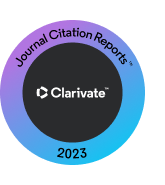Actions and policy tools for local governments to achieve integrated sustainable waste management
DOI:
https://doi.org/10.5327/Z21769478968Keywords:
public management; sustainability; governance; municipal solid waste.Abstract
Integrated management of municipal solid waste seeks sustainability under the premises of environmental protection, health promotion, and economic development. In this context, this article proposes actions and policy tools for local governments to improve quality and governance in waste management. A set of 23 actions is proposed based on existing conceptual models and available legislation. The results are presented in three levels as follows: planning of the administrative and operational structure, waste management, and performance evaluation. The results showed that the proposed actions need to be implemented through policy tools, such as municipal legislation, social communication, normative instructions, and technical studies. The applicability of the proposed methodology, which might be replicated in any municipality to increase the efficiency of the waste management system, was positively evaluated in a medium-sized Brazilian city, which presented an overall attendance level of 52%.
Downloads
References
Asefi, H.; Lim, S., 2017. A novel multi-dimensional modelling approach to integrated municipal solid waste management. Journal of Cleaner Production, v. 166, 1131-1143. https://doi.org/10.1016/j.jclepro.2017.08.061.
Asian Development Bank. 2017. Integrated solid waste management for local governments: a practical guide. Asian Development Bank, Manila, Philippines. https://doi.org/10.22617/tim178662-2.
Bartolacci, F.; Paolini, A.; Quaranta, A.G.; Soverchia, M., 2018. Assessing factors that influence waste management financial sustainability. Waste and Management, v. 79, 571-579. https://doi.org/10.1016/j.wasman.2018.07.050.
Brazil. 2007. Federal Law No. 11,445. Establishes national guidelines for basic sanitation (Accessed September 2, 2020) at: http://www.planalto.gov.br/ccivil_03/_ato2007-2010/2007/lei/l11445.htm.
Brazil. 2010. Federal Law No. 12,305. Institutes the National Solid Waste Policy (Accessed September 1, 2020) at: http://www.planalto.gov.br/ccivil_03/_ato2007-2010/2010/lei/l12305.htm.
Brazil. 2019. Ministério do Desenvolvimento. Diagnosis of urban solid waste management in 2018 (Accessed June 27, 2019) at: http://www.snis.gov.br/diagnostico-anual-residuos-solidos/diagnostico-do-manejo-de-residuos-solidos-urbanos-2018.
Chung, W.; Yeung, I.M.H., 2019. Analysis of residents’ choice of waste charge methods and willingness to pay amount for solid waste management in Hong Kong. Waste and Management, v. 96, 136-148. https://doi.org/10.1016/j.wasman.2019.07.020.
Deus, R.M.; Mele, F.D.; Bezerra, B.S.; Battistelle, R.A.G., 2020. A municipal solid waste indicator for environmental impact: Assessment and identification of best management practices. Journal of Cleaner Production, v. 242, 118433. https://doi.org/10.1016/j.jclepro.2019.118433.
Dutra, R.M.S.; Yamane, L.H.; Siman, R.R., 2018. Influence of the expansion of the selective collection in the sorting infrastructure of waste pickers’ organizations: A case study of 16 Brazilian cities. Waste Management, v. 77, 50-58. https://doi.org/10.1016/j.wasman.2018.05.009.
Fernando, R.L.S., 2019. Solid waste management of local governments in the Western Province of Sri Lanka: An implementation analysis. Waste and Management, v. 84, 194-203. https://doi.org/10.1016/j.wasman.2018.11.030.
Fidelis, R.; Marco-Ferreira, A.; Antunes, L.C.; Komatsu, A.K., 2020. Socio-productive inclusion of scavengers in municipal solid waste management in Brazil: Practices, paradigms and future prospects. Resources, Conservation and Recycling, v. 154, 104594. https://doi.org/10.1016/j.resconrec.2019.104594.
Fuss, M.; Barros, R.T.V.; Poganietz, W.R., 2018. Designing a framework for municipal solid waste management towards sustainability in emerging economy countries - An application to a case study in Belo Horizonte (Brazil). Journal of Cleaner Production, v. 178, 655-664. https://doi.org/10.1016/j.jclepro.2018.01.051
Instituto Brasileiro de Geografia e Estatística – IBGE. 2020. Projection of the population of Brazil and of the federation units (Accessed June 5, 2020) at: http://www.ibge.gov.br/apps/populacao/projecao/index.html.
Kaza, S.; Yao, L.C.; Bhada-Tata, P.; Van Woerden, F., 2018. What a Waste 2.0: a global snapshot of solid waste management to 2050 (Accessed June 1, 2020) at: https://openknowledge.worldbank.org/handle/10986/30317.
Marino, A.L.; Chaves, G.L.D.; Santos Junior, J.L., 2018. Do Brazilian municipalities have the technical capacity to implement solid waste management at the local level? Journal of Cleaner Production, v. 188, 378-386. https://doi.org/10.1016/j.jclepro.2018.03.311
Mwangi, M.; Thuo, A., 2014. Towards conceptual and theoretical foundation for identifying problems, challenges and mechanisms for municipal waste management in developing countries. International Journal of Innovation and Science Research, v. 2, (2), 230-251.
Schübeler, P.; Wehrle, K.; Christen, J., 1996. Conceptual framework for municipal solid waste management in low-income countries. Working Paper No. 9. Switzerland.
Silva, L.; Prietto, P.D.M;. Korf, E.P., 2019. Sustainability indicators for urban solid waste management in large and medium-sized worldwide cities. Journal of Cleaner Production, 237, 117802. https://doi.org/10.1016/j.jclepro.2019.117802.
Siman, R.R.; Yamane, L.H.; De Lima Baldam, R.; Pardinho Tackla, J.; Assis Lessa, S.F.; Britto, P.M., 2020. Governance tools: improving the circular economy through the promotion of the economic sustainability of waste picker organizations. Waste and Management, v. 105, 148-169. https://doi.org/10.1016/j.wasman.2020.01.040.
United Nations Environment Program – UNEP. 2005. Integrated Waste Management Scoreboard: a tool to measure performance in municipal solid waste management. United Nations Environment Program (Accessed April 10, 2020) at: http://wedocs.unep.org/handle/20.500.11822/8409.
United Nations Environment Program – UNEP. 2015. Global Waste Management Outlook. United Nations Environment Program, Osaka (Accessed April 10, 2020) at: https://www.researchgate.net/publication/283085861_Global_Waste_Management_Outlook_United_Nations_Environment_Programme_UNEP_and_International_Solid_Waste_Association_ISWA.
Van De Klundert, A., 1999. Integrated sustainable waste management: the selection of appropriate technologies and the design of sustainable systems is not (only) a technical issue. In: CEDARE/IETC Inter-Regional Workshop on Technologies for Sustainable Waste Management, 1999, Alexandria, Egypt.
Van De Klundert, A.; Anschutz, J., 2001. Integrated sustainable waste management - the concept: tools for decision-makers: Experiences from the Urban Waste Expertise Program.
Welivita, I.; Wattage, P.; Gunawardena, P., 2015. Review of household solid waste charges for developing countries - a focus on quantity-based charge methods. Waste and Management, v. 46, 637-645. https://doi.org/10.1016/j.wasman.2015.08.018.
Xu, L.; Ling, M.; Wu, Y., 2018. Economic incentive and social influence to overcome household waste separation dilemma: a field intervention study. Waste and Management, v. 77, 522-531. https://doi.org/10.1016/j.wasman.2018.04.048.
Zurbrügg, C.; Caniato, M.; Vaccari, M., 2014. How assessment methods can support solid waste management in developing countries-a critical review. Sustainability, v. 6, (2), 545-570. https://doi.org/10.3390/su6020545.
Published
How to Cite
Issue
Section
License
Copyright (c) 2021 Revista Brasileira de Ciências Ambientais

This work is licensed under a Creative Commons Attribution 4.0 International License.


























